Feature of the Day: Five things international students should know this semester
The Southern Accent
The Student Voice Since 1926
Pressing Issue: Two business closures in Cambridge Sqaure

Institution Grant Faces Legal Challenge
"If we support each other, that's the least we can do, but also through prayer, anything can happen."
Hayden Kobza Editor-in-Chief
I n the state of Tennessee, Southern Adventist University—the only college within the state to qualify as a Developing Hispanic-Serving Institution (DHSI)—is drawing national attention due to a lawsuit challenging the constitutionality of the federal program.
At stake is a $3 million federal grant the university has been receiving over a fiveyear period since 2023, the largest grant the institution has ever received. To qualify for the funding, a university’s Hispanic enrollment must be at least 25%. At Southern, Hispanic students currently account for 28% of the student body.
Editoral M anager for Marketing and University Relations, Becky Brooks, released a statement to the Accent on behalf of Southern.
“Southern Adventist University’s DHSI grant allows the university to strengthen support services, implement institutional changes, and improve learning opportunities for all students,” Brooks stated in an email.
“It also allows us to encourage all high school students, with an emphasis on the underserved, to take appropriate high school courses and then choose STEM degrees at higher education institutions of their choice.”
Alejandro Robles, a sophomore biology major and Latin American Club president, described Southern qualifying for the grant as “a beautiful thing” for students.
"If you want an opportunity or a chance, you can get it here at Southern,” Robles said.
Even though Southern qualifies for the P rogram due to its Hispanic population, the grant doesn’t only benefit Hispanic students. “If it's for everyone, that just means we need it more,” said Robles. However, the funding may now be in jeopardy.
On June 11, the State of Tennessee, along with Students for Fair Admissions (SFFA), filed a complaint in federal court, suing the U.S. Department of Education for its DHSI grant program. The U.S. Justice Department, mean-
while, has declined to defend the federal program, calling it unconstitutional.
According to the plaintiffs, The Higher Education Act (HEA) of 1965—a federal law that governs student financial aid, institutional support and education policy—is using discriminatory practices to allocate funds for colleges and universities that have an ethnic threshold of 25% HispaniC
“The State of Tennessee operates many colleges and universities,” the complaint states. “Every one of them serves Hispanic students. Every one of them serves low-income students. But not one of them qualifies to receive grants under the DHSI program. Why? Because they don’t have the right mix of e ethnicities on campus.”
“There is no valid reason to
- Alejandro Robles
make federal funds turn on race or ethnicity,” the complaint states further. “...Funds should help needy students regardless of their immutable traits, and the denial of those funds harms students of all races.”
Just over one month after the lawsuit was filed, the Hispanic Association of Colleges and Universities (HACU), Latino Justice and the Puerto Rican Legal Defense and Education Fund (PRLDEF) filed a motion to intervene as a defendant, but the courT has not formally granted the intervention.
Critics of the lawsuit argue that DHSI programs do not favor certain racial or ethnic preference when admitting students, but instead, it allocates funds to schools with
Memories yearbook faces uncertain future
staff for the yearbook due to low pay or it simply not being a priority in some students' minds.
Southern Adventist University is facing the possibility of not producing a Memories yearbook for the 2025–2026 school year. This marks the second time in the history of the yearbook that the university may not have one.
This news comes after the inability to find a student to lead the yearbook team for this school year.
According to Andrew Boggess, yearbook editor for the 2024-2025 school year, setting up the yearbook was "kind of a mess from the previous school year," Boggess said. His statement was in reference to Memories not being produced the year prior to Boggess' appointment.
He said working as an editor requires meeting with club leaders, finding staff members and organizing times with every academic department.
When trying to find records of previous club officers, the yearbook may be one of the only places where documentation of membership can easily be found.
In the 2022-2023 school year, the university provided yearbook alternatives such as memory walls, digital yearbooks and other online options. However, some students have expressed concern about those ideas.
Emily Livergood, a junior art student, explained that there may be difficulty in finding
Institution continued from page 1
large numbers of underserved students.
“Take, for example, Southern Adventist University, a HACU-member organization and an DHSI, based in Tennessee, whose student population is about 40% white and which serves 28% Hispanic students,” the motion stated.
According to HACU, the DHSI program does not mandate racial or ethnic preference to achieve an enrollment threshold.
"It does not require an institution to consider the race or ethnicity of a student for admission," the motion states. "It does not treat individual students differently on account of race or ethnicity.”
Brent Hamstra, chair of Southern’s Chemistry Department, expressed concern about the potential loss of $275,000 in funding for laboratory equipment and outreach programs, which could impact students of all races and ethnicities. The department received $25,000 for the current budget year through the DHSI program, according to Hamstra. It is slated to receive $200,000 for the next budget year, which begins in October, and an additional $75,000 in the final year of the grant.
"The funding is not racially limited and benefits all students,” Hamstra said. “... Departmentally, I am concerned about the potential loss of $275,000 to buy laboratory equipment, as well as the other support and outreach
Boggess and Livergood expressed concerns about the lack of a yearbook this school year. Both parties suggested that having an alternative would be better than producing nothing at all.
“Our students should care about the legacy that they have at our institution,” said Boggess.
While some have voiced their desire to have a yearbook, other students have
pointed out the benefit of its absence.
“Half the time people forget about getting the yearbook at the end of the year,” said Daisy Morgan, a junior advertising major. “I think using the funds for more important and popular events could be good.”
“I don’t mind not having a yearbook,” said Sierra Trombley, a junior graphic design major. “As long as they’re using the money to benefit students in other ways; then it seems like a good idea to me.”
Though the yearbook is
at risk, Jehiely Balabarca, a senior strategic communication major and Strawberry Fest producer, has proposed a new alternative to combine Memories with Strawberry Fest. According to Balabarca, joining forces with Memories would be more efficient.
“Last year, not many students knew what Strawberry Fest was, and the memories team was asking for pictures from us,” she said. “It was not as useful because there were three main media teamsMemories, Strawberry Fest and the Student Association
photographer. There was a lot of waste of space and media.”
On Sept. 8, Balabarca officially sent a request to Student Development via email requesting that the two organizations be combined.
“We can merge two good things- not just the media side but also the paper side,” she said. “The hope is that these two departments work as one in the future.”
The Accent reached out to Dennis Negron on this matter, but did not receive a response.
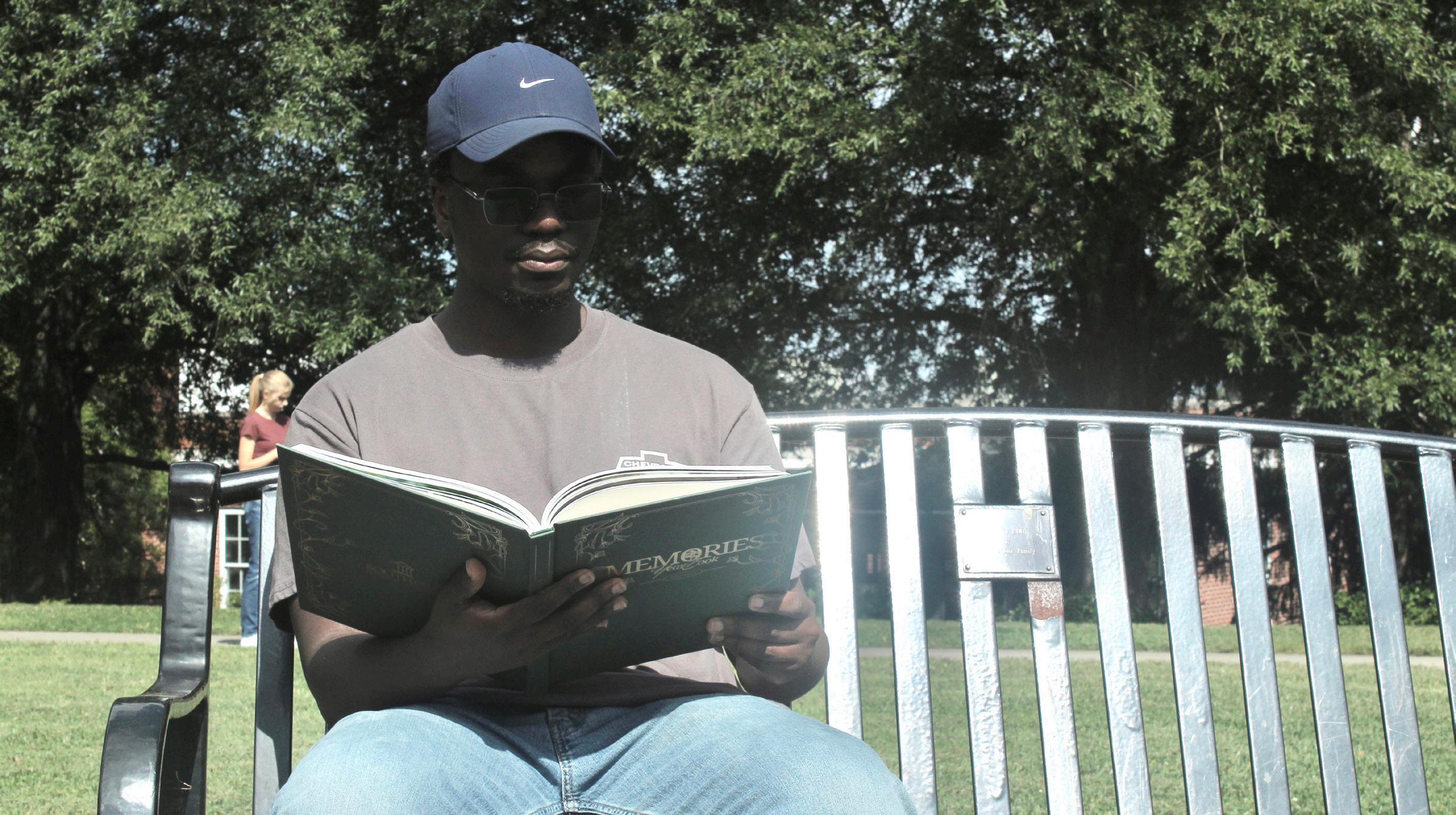
programs that would not be funded.”
Hamstra said the funding the Chemistry Department expects to receive has been allocated for a Nuclear Magnetic Resonance (NMR) spectrometer, which allows chemists to study the structure, dynamics and chemical environment of molecules.
“What we would be trying to get for next year would be something that would allow us to process things faster,” Hamstra said, “which when we're trying to give 150 students taking Organic Chemis-
5
try access to that instrument, being able to get lots of samples done faster is kind of a big deal.”
In addition to the potential loss of funding, Hamstra said he is troubled by what he considers the university’s “silence” amid the controversy and the message it could potentially send to Hispanic students. He is also concerned about what the lawsuit could mean for academic departments that have been receiving the grant money.
“I'm not happy that nobody is currently on the defense,”
he said of the university’s response. “I don't know what kind of message this sends to the Chemistry Department or to the School of Engineering and Physics that has also substantially benefited from this grant. In fact, in terms of equipment, Engineering has gotten substantially more support than Chemistry has from this grant.”
The Accent tried reaching Tyson Hall, chair of the School of Engineering and Physics, for comment, but received no response. When asked about his
thoughts on Southern’s response, Robles expressed his desire to know more about what students can do to fight for the grant because he is grateful for the resources it has already given Southern. Robles said if the grant is taken away, the students will handle it “with community, with each other.”
“If we support each other, that's the least we can do," He said, but also through prayer, anything can happen.”
Things international students need to know for the semester
Eliana Morales Managing Editor
As the semester begins, colleges across the United States are experiencing a drop in international students, as reported by the Chattanooga Times Free Press last week.
Although Southern Adventist University also expected a significant drop in incoming international freshmen, last year’s record-high international enrollment and strong retention rates have placed Southern in a position where changes are not as impactful, according to Ryan Harrell, web and analytics manager.
Amid changing visa policies, here are five things international students need to know:
1. Trump Administration proposes a 4-year limit On Aug. 28, the Department
The Accent encourages readers to write articles and voice their opinions. However, the views expressed do not necessarily reflect the opinions of the Accent, the Southern Adventist University or the Seventh-day Adventist Church.
For any questions, comments and article submission information, email the editor at haydenjkobza@southern.edu.
For all advertising inquiries, email alvajohnson@southern.edu.
Editor-in-Chief
Managing
News
of Homeland Security (DHS) published a proposal that would set clear time limits on visas for international students.
Since 1979, students on F-1 visas have been allowed to stay in the U.S. under “duration of status,” meaning they could remain in the country as long as they stayed enrolled in school without regular re-evaluation. The DHS proposed eliminating that system, as it believes some international students have used the openended system to stay in the U.S. for extended periods by continuously enrolling in programs.
Under the new proposal, students and exchange visitors would be allowed to stay only for the length of their academic program, with a maximum of four years.
Opinion
Lifestyle
Religion
Sports
Staff
Students in language training programs would have a 24-month limit. An undergrad student wanting to pursue graduate school would need to reapply for a visa instead of obtaining a new Form I-20 from their school.
Anyone needing to stay beyond these limits would have to request an extension through the U.S. Citizenship and Immigration Services. This rule is a revival of a measure first proposed in 2020, which was later withdrawn in 2021. It is not yet in effect and is open for public comment until late September.
Grace Du Bois, Southern’s international student services coordinator, stated another way the proposed rule could affect students if implemented. “There’s a chance that
they will not be able to easily extend their I-20,” she said. If a student needed an extension to their program, they would need to go through a more formal application process with the government rather than simply submitting a letter from their program advisor.
2. Restrictions on changing programs
The proposal also states that F-1 visa holders must wait a whole academic school year before changing programs or transferring out of the school that issued their Form I-20 or successor form. Additionally, graduate-level students would not be allowed to change programs at all.
3. Tighter exit deadlines Currently, F-1 visa holders are given a grace period of 60
See 5 Things to Know on page 3
Web
Things
to
Know continued from page 2
days to remain in the country after graduation to prepare for departure. If the proposal is implemented, students would be given only 30 days.
4. Options after graduation
Those wanting to work in the U.S. after graduation can apply for Optional Practical Training (OPT), which allows international students on F-1 visas to work in the United States for up to one year in a job directly related to their field of study.
Students can apply for postgrad OPT as early as 90 days before their degree completion. The first step for application requires the student’s designated school official to recommend OPT.
There is an extension available for certain STEM (science, technology, engineering and math) majors. If eligible, these students can extend their OPT by 24 months, giving them a total of up to three years of work authorization.
After the OPT period ends, graduates who want to remain in the U.S. typically need to switch to a different visa, such as an H-1B, to continue working.
Du Bois encourages international students who wish to continue working in the U.S. to foster relationships with potential employers far ahead of graduation.
“Especially with these potential policy changes, there’s going to be a lot of hesitancy from employers to even work with F-1 students, so establish those relationships far ahead of time,” she said.
5. Proposed rule places
recent grads at a disadvantage
The H-1B visa allows U.S. employers to temporarily hire foreign workers in specialty occupations for an initial period of three years, with the possibility of extending up to six years.
These jobs require highly specialized knowledge and at least a bachelor’s degree or equivalent in a specific field, such as engineering, computer science, medicine or business.
Traditionally, international students who graduate on F-1 visas often rely on H-1B sponsorship to stay and work in the U.S., entering a lottery system due to high demand and limited annual visas.
On July 17, the DHS proposed to end the random lottery and instead prioritize applicants based on the wages offered by their employers. Higher-paying positions would have a better chance of approval, while lower-paid jobs and recent graduates may face increased competition.
On Aug. 8, the Office of Management and Budget cleared the rule for publication in the Federal Register. Once the rule is published, the public will be able to comment for 60 days before a final rule is drafted.
Student voices
Will rapidly changing policies make the U.S. less attractive to international students?
Abdiel Vargas, a junior social work major, believes so.
“[The U.S.] would probably be less appealing,” he said. “If [international students] think that it’s going to be so complicated coming here, they might choose other places where it would be less difficult for
them.”
Vargas has been studying in the U.S. since 2022, his senior year of high school.
Sharna Ebanks is a senior mass communication advertising major and an international student from Roatán, Honduras, who began studying in the U.S. four years ago. She believes a person’s values play a large part in how attractive the U.S. would remain.
“Personally, I came up here to Southern because it’s an Adventist university, and it’s English-speaking,” she said. “[The new policies] wouldn’t be a dealbreaker for me because I want to be at this school. I don’t have universities back home that are English.”
Ebanks thinks that for others who aren’t necessarily looking for an Adventist education but are seeking prestigious universities such as Harvard, changing policies might not cause the U.S. to lose its appeal.
Students also shared some of the challenges they face as international students in America.
“It’s hard that you can’t work off campus because on-campus jobs pay too little, and there’s a limit you cannot go over,” said Daniel Zhao, junior nursing major. He studied in the U.S. throughout high school and is now in his third year at Southern.
“They keep changing their laws and stuff, and keep targeting foreigners in many laws, so I definitely get stressed sometimes,” Vargas said. He hopes to obtain a student visa by next semester and is currently in the U.S. through his parents’ religious worker status.
Leaving home was an
adjustment for many, including Alina Akopian, sophomore business administration major.
“It takes time for you to get used to a completely different culture, especially when you didn’t come with your family or know anyone,” she said.
Akopian said that she has adjusted to the U.S. culture, equipped with new knowledge and friends who are like her “second family.”
The future weighs on these students’ minds. Zhao had not previously heard of OPT but is now considering it as a path forward.
“I need OPT,” he said. “I think with the new policy it might be pretty challenging.”
Ebanks also hopes to work in the U.S. after graduation but believes it is not her decision alone.
“I’m leaving it up to God for sure, because He’s the one
who brought me up here,” she said. “With this whole thing going down, it’s kind of dependent on Him, whether He wants to keep me up here or if I should go back home.”
Advice for international students
Take full advantage of being at a school where you can work in the university and learn and grow professionally. - Ebanks
Be careful what you post on social media! - Vargas
Just don’t work over 20 hours. Don’t get a ticket, get pulled over or work off campus. - Zhao
Make sure to report all information changes to Southern, including a dorm room switch. - Du Bois
Remember that you are here for a purpose. If you know Him, trust Him with the process. - Akopian

Student Development introduces new policies on transportation devices
Chloe Smith News Editor
On Friday, Aug. 29, the Student Development Office emailed all students announcing handbook policy changes regarding scooters, bicycles, skateboards and other transportation devices. The new amendment, approved by the Student Development Committee in the Winter 2025 semester and during the summer, presented new safety precautions, including when and where students can ride.
In a recent email with the Accent, Vice President of Student Development Dennis
Negron, explained the motivation behind these changes.
“Penn State University was sued one or two years ago for having a policy that read similar to ours yet was unenforced,” he stated. “Many universities reacted to this lawsuit by evaluating their policies on skateboards. We did the same through our Student Development Committee, which has student representation on it.”
The most notable policy change is the helmet mandate for those riding a motorized scooter, skateboard or longboard.
The Student Development
Office email also encouraged students to wear protection, such as wrist guards, elbow pads and knee pads. Students assume personal risk by using these devices, and the university assumes no responsibility for injuries.
Updates to the policy include:
- A 10-mph speed limit for scooters and bikes on sidewalks.
- A ban on riding in inclement weather when sidewalks are wet.
- A ban on riding inside buildings, performing tricks or sliding on railings.
- A ban on storing or park-

ing devices inside buildings, in parking spaces or on lawns.
- A requirement that battery-charged devices must not be left unattended and use the manufacturer’s charger only.
According to the email by the office, violating these rules may result in a $200 fine.
“The campus safety goals are obvious,” said Negron.
“We are motivated by making sure our pedestrian traffic is not injured in a collision with someone on a motorized conveyance.”
Though the Student Development Office emphasized safety and liability, not all students are in agreement with the changes.
“I think it’s a little ridiculous,” said Ephram Otodo, a junior business-public relations major who rides a Segway on campus. “I am very cautious. When I’m going around, people see me. I haven’t gotten injured. No one that’s used [the segway] has gotten injured.”
Otodo also explained what he believes is inconsistent enforcement by the University.
“There are golf carts on the Promenade, and I’ve almost run into a golf cart,” he said. “We have actual vehicles and trucks on the Promenade and in front of Thatcher.”
According to Otodo, devices such as Segways or scooters make transportation to class more convenient.
“I used to live in Village and that’s what made my travel easier,” he said.
Isaiah Lawrence, a senior theology major who rides a skateboard on campus, expressed concerns with the updated policy.
“I understand from a legal standpoint, but they already had in the handbook that if
you do these actions, you assume the risk,” he said. “I more so don’t understand the $200 fine.”
Lawrence also complained that many students have invested in electric scooters in hopes of using them on campus.
“Now people that have dropped money on a scooter to use for college are barred from using them during a certain time, essentially when classes are going on,” he said.
Lawrence, who ran a skateboarding life group called Board for the Lord, emphasized that most students who skate at Southern are responsible.
“I try to be out of the way, and I feel like other people have done that as well,” he said.
Lawrence believes accidents are rare on campus.
“I haven’t actually seen a lot of scooter accidents involving other people, so clearly they have some spatial awareness.”
Despite opposing opinions, the policy decisions were made by both staff members and students, according to Negron.
“Those students-as well as other staff members- advocated for finding a middle-ofthe-road policy, rather than one that would ban motorized conveyances altogether,” he said. “Thus, we compromised by saying these motorized skateboards and scooters would not be banned from campus, just from the Promenade.”
Though these mandates expressed in the email stand for now, Negron explained that policies are reviewed by the Student Development Committee yearly. For more information, the handbook can be found at www.southern.edu/handbook.
Editor's Note: The Southern Accent has produced a two-page Collegedale News section this issue as part of a national initiative to enhance community news coverage. The local effort, led by Southern's School of Journalism and Communication in conjunction with the Center for Community News (CCN) at the University of Vermont, places student journalists at the forefront of addressing the news desert crisis, a phenomenon caused by the decline of newspapers in local communities. The Accent believes local news is vital to a thriving democracy, and we remain committed to reporting about important issues, novel occurrences and interesting people in the greater Collegedale area. We will publish this special section in five issues of the newspaper this semester. To submit tips or press releases, go to https://southern-accent.org.
Remembering Phil Garver: Community mourns the loss of a dean, commissioner, veteran and friend
Philip “Garv” Garver, a former Collegedale city commissioner and dean of Southern’s physical education program, passed on Sept. 2 at age 79.
Garver served Southern for 37 years, including 26 years as dean of what is now the School of Health and Kinesiology, making him the “longest-serving professor in the field at Southern,” according to a memorial email released by the Office of President Ken Shaw. During that time, Garver developed and implemented three majors at Southern: Corporate and Community Wellness, Sports Studies and Vegetarian Culinary Arts.
“His leadership transformed the program, culminating in the formation of the School of Physical Education, Health and Wellness in 1996,” the email stated.
Garver also raised funds and provided the vision for Hulsey Wellness Center, according to Robert Benge, Garver’s successor. Unfortunately, after Garver raised the money, the president allocated the funds to a different project.
“To have something like that happen to any other dean would surely have caused them to quit or resign,” Benge stated in an email. “But not Garv! Talk about courage in the face of adversity! He never lost sight of his vision for Southern’s faculty, staff, students and community to enjoy the health benefits of having a facility for recreation. He remained steadfast in his resolve to see his dream come true. The Southern and Collegedale community has lost a true visionary with the passing of Dr. Phillip Garver who dedicated his life to the health and wellness field.”
Garver’s influence extended well beyond the workplace for Benge.
“Garv was like a second dad to me,” he said. “His interest in me helped shape what I became in life. God looked down on me with favor for putting Garv in my life. I trusted his counsel, advice, and anecdotal wisdom he offered me will continue to guide me.”
“There's no way that a little brief discussion could encapsulate everything that Garver has meant to me or this department or this community,” said Judy Sloan, current dean of the School of Health and Kinesiology. “The impact that he's had is enormous.”
Sloan repeated Garver’s commonly used phrase, “get ’er done,” and recalled witnessing that phrase in action during her first week of teaching at Southern back in 2001. Her classroom was equipped with a chalkboard instead of a whiteboard. To her, a chalkboard was impractical and outdated, so she told Garver she needed a whiteboard.
“What’s a whiteboard?” he had replied. Expecting nothing to change, Sloan bought a case of colorful chalk that night. The next day, a new

whiteboard stood where the chalkboard had been.
"From that moment on, I’m like, ‘Oh my word, this is the guy to work for,’” she said.
“He's the kind of person that when you say your word or shake his hand, you know it's a done deal.”
Sloan believes Garver’s passion for helping others was largely due to his relationship with God.
“He didn’t overly talk about God or his relationship with God, but it came out in how he lived his life, and you could see it,” she said.
Lorraine Ball, School of Journalism and Communication professor, was once Garver’s high school P.E. student.
“He was one of the most optimistic people I can ever remember,” she said. Ball recalls him wanting to buy an RV so he could travel to academies that needed help with repairs. Garver and his wife, Betty, would also invite students to their house on Friday nights for hot chocolate and brownies.
“[Garv and Betty] were always thinking about ways of helping, giving, working with students and wanting to giveback,” she said.
“To colleagues, students, and friends, Dr. Garver was more than a leader—he was a powerhouse of energy and ideas, a mentor who believed in others, and a friend whose presence made a lasting difference,” according to the email from Shaw’s office. “His legacy lives on in the programs he built, the facilities he envisioned, and the countless lives he inspired.”
Garver was born in Oregon and raised in Texas. In 1970, he graduated from Southern with a Bachelor of Science degree in health, physical education and recreation. He was drafted into the U.S. Army in 1966 and served as a medic in Vietnam for 11 months. In 1976, after receiving his master’s degree in P.E., Garver returned to Southern to teach physical education, health and wellness. He became head of the Physical Education department in 1987 and earned a doctorate in health education from the University of Tennessee, Knoxville, in 1988.
Garver was also influential in the surrounding Collegedale community. He served as a Collegedale City Commissioner from 2014 to 2022. He also served as the post commander
of the Veterans of Foreign Wars (VFW) Post 1697 from 2014 to 2016. VFW is a national nonprofit that supports veterans who served overseas.
Bryan Hardy, current commander of VFW Post 1697, said, “When I was nominated and elected as the post commander in April 2024, Phil was one of the first to put his full support behind me, even with ideas that would change the way we had been doing events and supporting our community. Phil loved the VFW, our nation's veterans and the youth in our community. He showed this through the friendship and mentorship of everyone he met and the patriotism he displayed.”
Garver was also a member of the American Legion Desmond T. Doss Post 257, a local chapter of the nationwide veterans’ service organization.
Dennis Smith, commander of the post, said Garver was a “driving force” in the development and construction of Collegedale’s Veterans Memorial Park. At past Veterans Day celebrations in Collegedale, Garver was publicly recognized for his service and given a standing ovation. “Every year we do some-
thing, and it reminds us that Phil worked hard to establish the park,” he said. “We’ve always taken a moment to thank Phil.”
This year, that recognition will take on a new form. The band will play “Taps,” the traditional bugle call sounded at military funerals.
“He’ll continue to be recognized,” Smith said. To honor Garver's memory, a memorial has already been set up at Collegedale Veterans Park.
According to the email from Shaw’s office, a memorial service will be held on Sabbath, Sept. 20, from 3 to 4 p.m. in the Collegedale Church sanctuary, with visitation from 2 to 3 p.m. in the Church’s South Atrium. In lieu of flowers, the family requests that memorial contributions be made to Learning Tree Elementary School, 300 Tibbs Rd, Dalton, GA 30720, or online at learningtreeschool.org.
While Southern and the Collegedale community pause to remember him, Benge summed up the hope shared by many: “I look forward to seeing him in heaven.”
Closing time: Two local businesses shut doors in Cambridge Square Over a two-month period
On July 8, Cambridge Square
announced on its Facebook page the closure of Joe Mama’s, a locally owned shake, sandwich and salad restaurant that opened Jan. 26 of this year.
This news was followed by a second announcement on Monday, Sept. 1, that a restaurant under the same ownership, Marthie Ann’s, would be shutting its doors as well.
In the July 8 post, Cambridge Square mentioned family obligations as being the main cause of Joe Mama’s closure.
“We talked with the ownership at length and fully understand the pressures they are facing,” the Facebook post reads. “We’ll be working to release the space over the next
several weeks and will keep you posted on our progress.”
According to a previous Accent article published Feb. 11, owner Joseph Keel designed Joe Mama’s to be a casual, family-friendly dining experience showcasing foods from various cultures.
“What we think of as international food is really just soul food,” Keel said.
The Accent requested an interview with Keel regarding both restaurants but did not receive a response.
Cambridge Square took to Facebook on Sept. 1 to share the news of Marthie Ann’s closure, and received 429 comments.
“We discovered this morning that Marthie Ann’s will no longer be operating in Cambridge Square,” the post read. “After close to a year of
working directly with their management to provide a path forward, it appears they are not in a position to continue operating.”
One previous waitress, Kimberlee Rodgers, commented under the post to share her feelings towards the news.
“As a full time server at Marthie Ann’s I want to thank each and everyone of our regulars for supporting and encouraging us through every battle we faced,” she wrote. “Please pray for myself and my coworkers at this time.”
Prior to Marthie Ann’s shutting down, the restaurant had been working on revamping its business model, according to a post made by Cambridge Square on July 8. The post explained that rising costs are straining locally owned businesses. "Costs across the
board for locally owned restaurants are crazy-high which means they have to be really nimble in their operations,” the post read. “It also requires a development structure that prioritizes long-term, flexible tenant relationships to enable change when it’s necessary.”
In an interview with the Accent, a previous waitress who wishes to remain anonymous, shared her experience working for Joe Mama’s and offered her perspective on why the restaurant closed.
“I worked [at Joe Mama’s] as one of the first waitresses when it first opened,” she said, “I had been working under that management for several months, and I could tell that there were a lot of problems within the restaurant as far as the owner and how he treated his staff. ...I also don’t think
that they marketed the restaurant very well.”
In their July 8 post, Cambridge Square expressed a strong need for community support for their locally owned businesses.
“... The more support that our restaurant family receives from the community, the more sustained they are in serving you delicious food,” the post reads.
According to the Sept. 1 Facebook post, Cambridge Square plans to work on a transition plan following the closures and will announce any progress on social media. The shopping plaza asks that all questions related to Marthie Ann’s or Joe Mama’s be directed to their ownership.


Welcome Back Party!
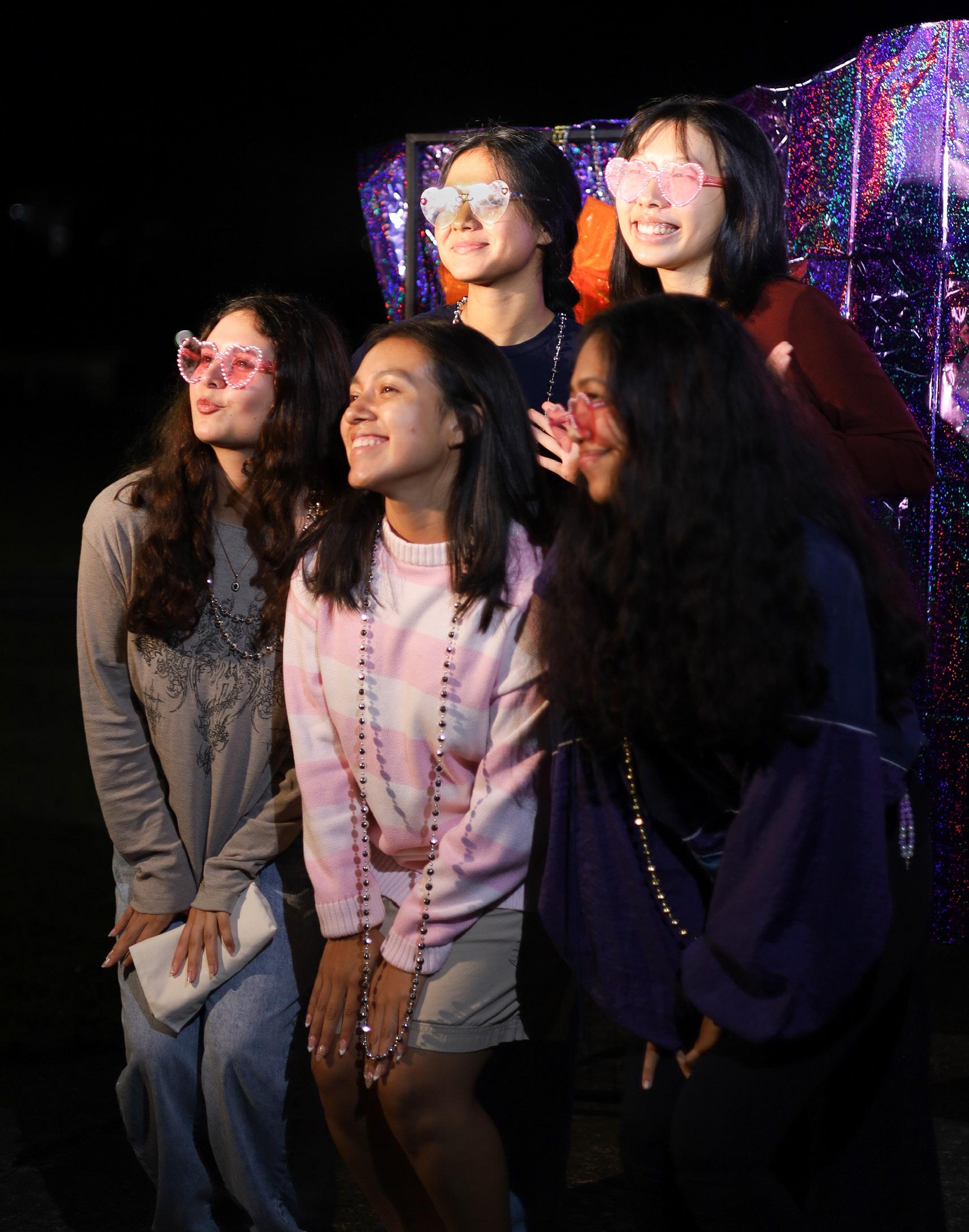

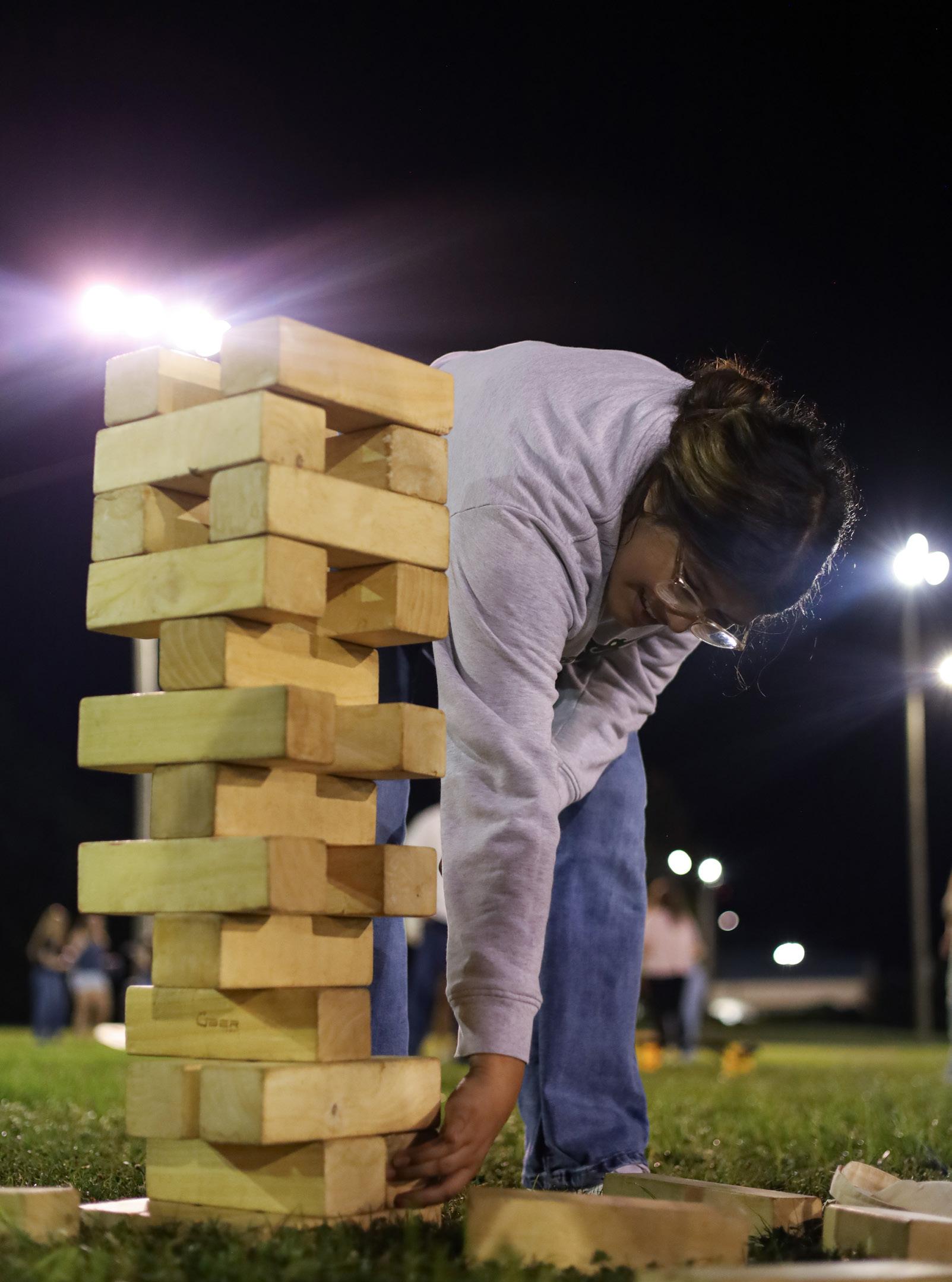
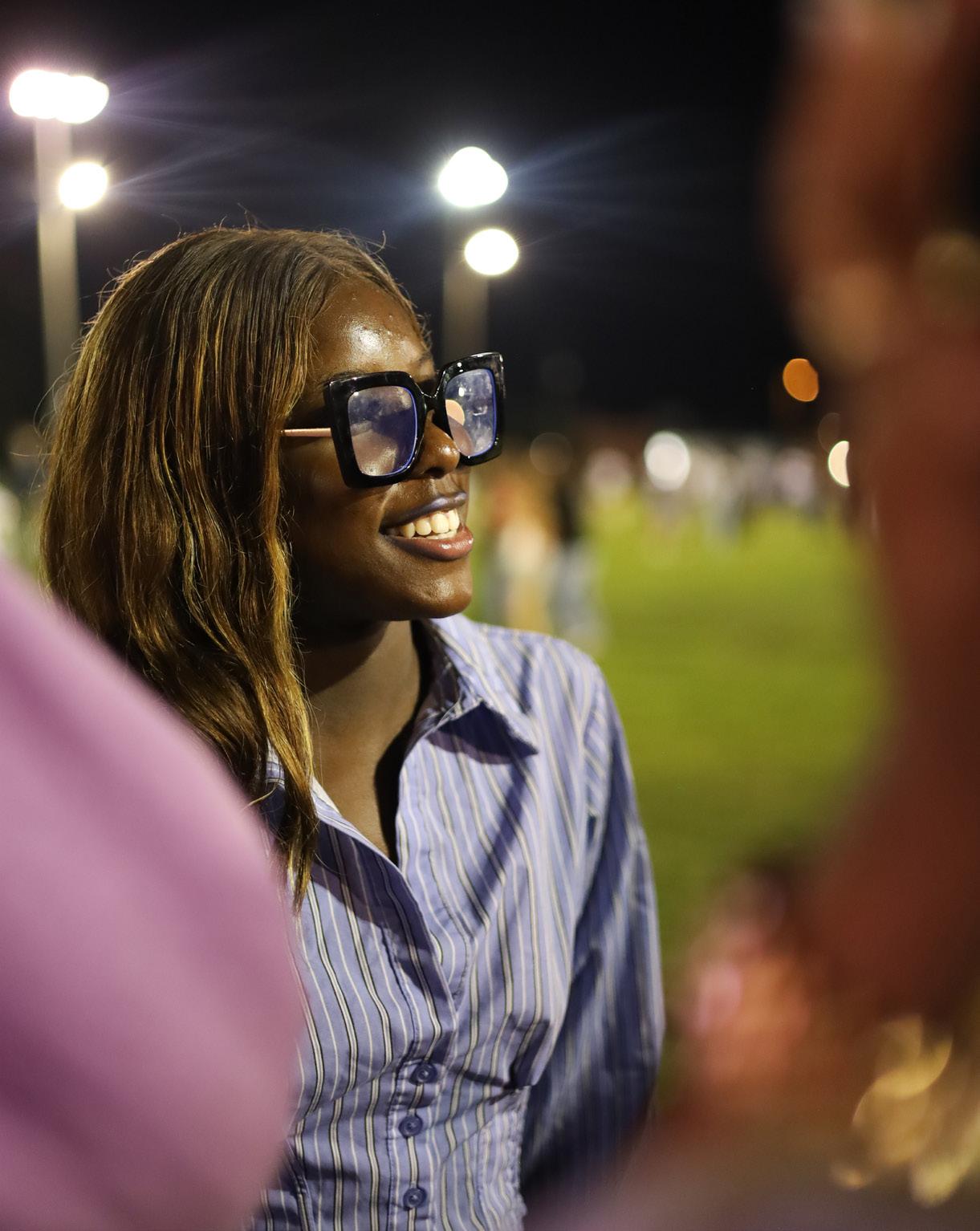

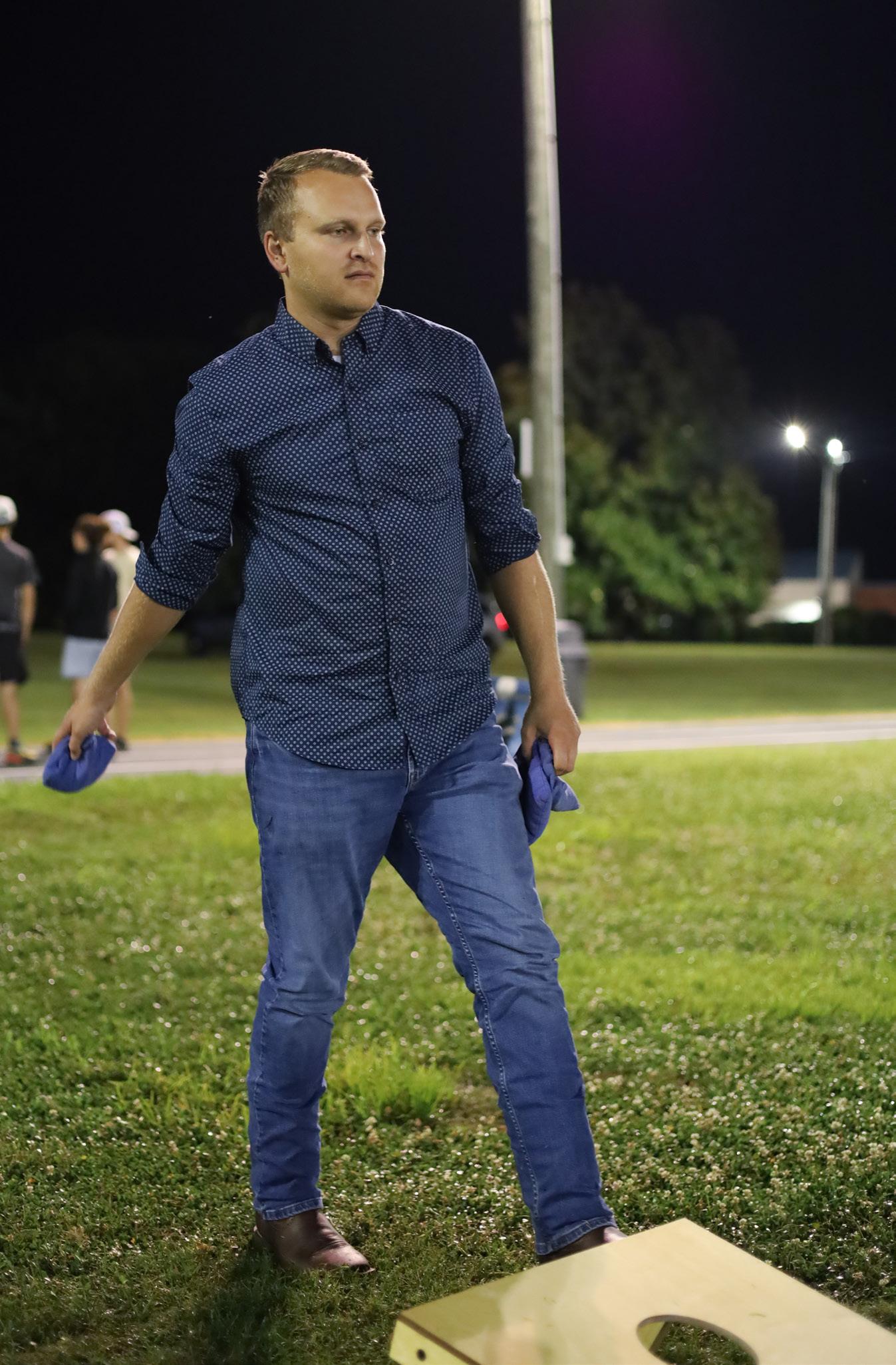
Abby Dizon Contributor
Editor’s Note: The following articles are written by counseling professionals and students from Counseling Services in partnership with the Southern Accent.
At the start of a new semester, college students not only experience the emotional strain of stress, but also the physical effects. Those who have experienced significant stress know its toll, often leading to headaches, tense muscles and other discomforts. Here are some quick college remedies that you can utilize to alleviate those symptoms during the demanding first weeks:
Headaches
A tension headache is the type of headache that often occurs during stress. Its symptoms are sensitivity to light, tight shoulder muscles and the feeling of something squeezing the sides of the head together. One way in which you can alleviate a tension headache is by applying a cold compress, which may help reduce inflammation and constrict blood vessels. Massaging pressure points also works to relieve tension in the head. Besides the usual instinct to massage the back of the neck, many people find that massaging the jaw, temples and neck brings relief. Other areas to massage include the space between the eyebrows, both spots at the base of the eyebrows and on either side of the nose bridge. Massaging the neck near the base of the skull has also been proven to release tension.
Managing the physical symptoms of stress SPORTS
Muscle Tension
To relieve the pain, you can apply a heat pack on the affected area—this will help relax the muscle. You can also utilize the Progressive Muscle Relaxation (PMR) method, a deep relaxation treatment used by doctors for symptom relief in a number of conditions, requiring only 10 minutes a day. Start this technique by tightly tensing the group of muscles
you want to focus on while you breathe in. Hold the position for approximately 10 seconds before breathing out and relaxing your muscles. Lastly, remain in a relaxed state for 15 seconds until moving onto the next muscle group. It is essential that you concentrate on your breathing and the sensation of your muscles tensing and relaxing.
Upset stomach
Stress can negatively affect your digestive health, causing issues like digestion, bloating and fullness of the stomach. One solution is to opt for smaller meals instead of bigger ones. While it is tempting to turn to unhealthy comfort foods when stressed, lighter meals can be more beneficial in reducing stomach pain. Other remedies like ingesting
mint and ginger are known to relieve pain and reduce muscle spasms, providing relief from stomach discomfort.
When stress disrupts your life, it is crucial to not only prioritize your emotional health but also your physical health. Taking proactive steps in maintaining a healthier diet and utilizing relaxation methods for both your muscles and head can significantly manage stress and promote well-being.

A student’s guide to SAU intramurals
Matthew Taylor Sports Editor
Southern Adventist University’s intramural program is in full swing, with both softball games and doubles tennis matches beginning over the past two weeks.
Students and employees are taking advantage of the chance to enjoy a wide variety of sports while building friendships and demonstrating good sportsmanship through a Christian attitude. Students appreciate the chance to play sports with like-minded peers.
“Intramurals have been an amazing experience for me,” said junior film major Jayden Cushing. “It has taught me what Christian competition
looks like as well as shown me how to work together and overcome challenges as a team.”
Faculty and staff enjoy the chance to play alongside students and coworkers as well. Professor Pablo Fernandez, of the School of Journalism and Communication shares, “My experience as a faculty member involved in intramurals at Southern summarizes the concept of bonding”.
Fernandez, who plays on a futsal team each year with other faculty and students, explained that competing with students helps professors and staff build stronger connections.
“It gives us a chance to connect deeper with the stu -
dents you are involved with. That could lead into fuller and deeper conversations, whether that’s in a professional setting, a spiritual setting, or a mentorship setting at Southern.”
Alumni also look back at intramurals fondly. Leilani Darnell, a 2025 nursing graduate, reflected, “I didn’t play intramurals until softball my senior year. It was a fun and low-stress study break, and I could also meet new friends and catch up with old ones. Looking back, I wish I had participated in intramurals more!”
Even community members and students from nearby schools have noticed Southern’s program. Blake Shelley, a student at Chattanooga
State Community College, said, “Southern’s intramurals stand out because they’re well-organized and always have a good showing.”
Having seen intramural leagues at other universities fall apart due to low attendance, Shelley added, “Honestly, it makes me wish I could be out there playing instead of just watching.”
The Fall 2025 semester features not only softball and doubles tennis, but also futsal, flag football and floor hockey. Futsal team and flag football signups have already opened, with the season starting Sept.15 and Sept. 24, respectively.
During the second half of the semester, floor hockey signups will begin Oct.13,
with the season starting Nov. 3. Basketball will not begin until the winter semester, but students will be able to register their teams Nov. 23.
Students and employees will also get the chance to participate in a variety of tournaments. The annual “For Love of the Game” softball tournament will run through the night of Sept. 27. The Evangelistic Resource Center (ERC) will host its futsal tournament Oct. 4. Later in the semester, there will also be a 3-v-3 basketball tournament Nov. 8, with signups opening Oct. 19.
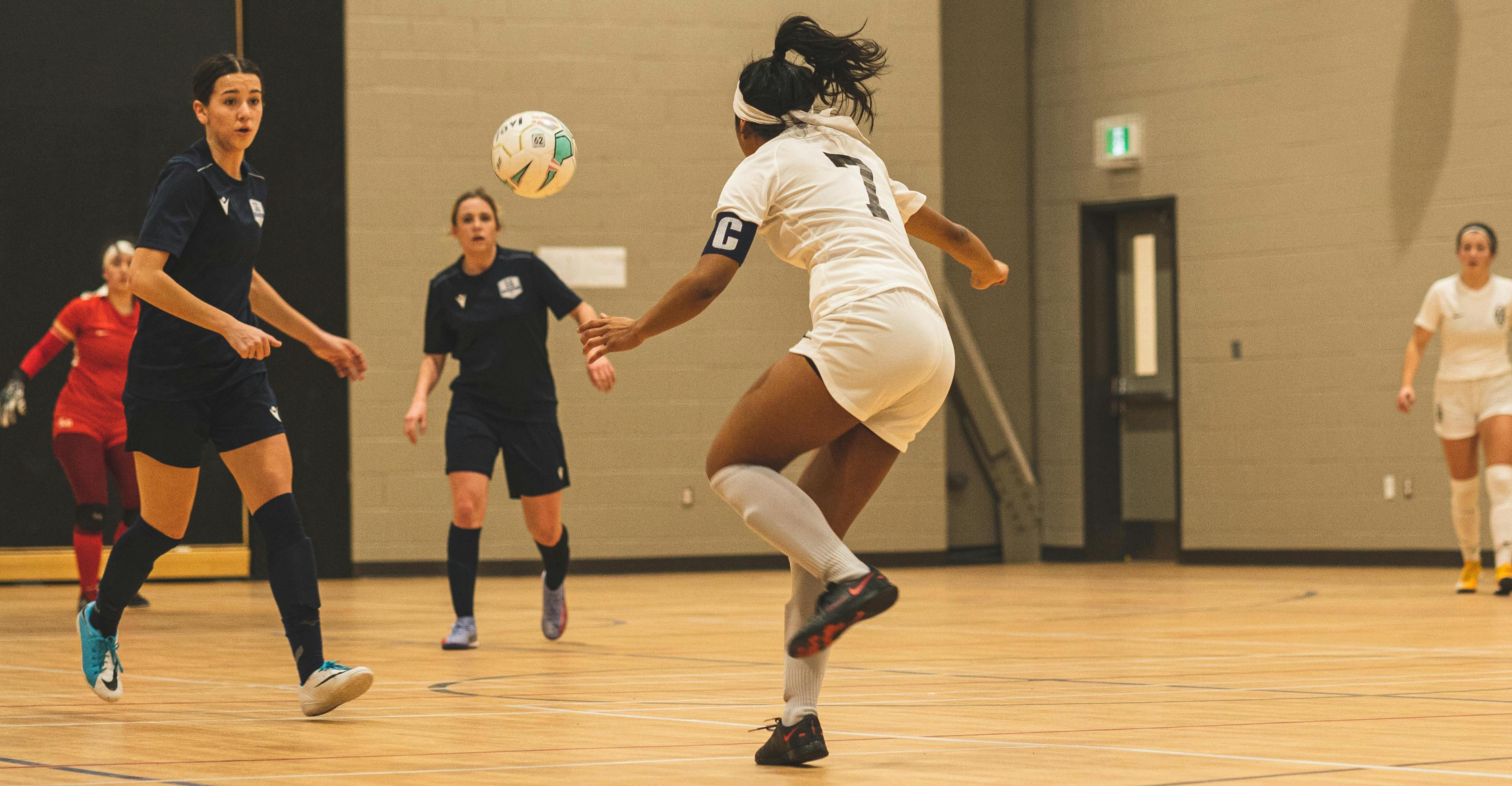
On not having an online opinion
Samuel Guerra Opinion Editor
Some time ago, while scrolling on my phone, I was about to share an article on my then-Twitter account when a prompt appeared on my screen: “Want to read the article first? You’re about to share an article you haven’t opened yet.”
It immediately made me realize that I had only read a tweet making bold declarations about what the article contained, rather than the article itself. I then decided to be more mindful about the information I share. This experience made me think that this prompt was only an easily skippable layer of friction to access the vast ocean of opinions flowing online.
Despite recent rampant censoring in the last decade, social media democratized how thoughts and opinions are shared, giving us street-level journalism and perspectives previously unavailable through legacy media alone. But this revolution came with an unexpected cost: the illusion that we must always have an opinion on everything, on attitude I admit I’ve been guilty of, too. The design of these platforms has trained us to believe that silence equals indifference when in reality, thoughtful restraint can be the most engaged response of all.
Social media isn’t designed for learning; it’s engineered for opinion extraction. Every 15-second video, tweet poll and “hot take” prompt trains us to react first and research never. Platforms prioritize content based on engagement, creating echo chambers where “no
opinion” gets treated as intellectual laziness. We’ve confused having a stance with having understanding. When complex issues become intellectual fast food, we develop shallow reactions to problems requiring nuanced solutions. The result? More polarization and exhaustion with the very conversations we feel compelled to join.
What if the most powerful thing you could say online today is simply, “I’m curious to learn more about this?” This isn’t apathy, it’s intellectual integrity.
Choosing not to weigh in on lab-grown meat doesn’t mean you don’t care about climate change or animal welfare; it
means saving your strong opinions for issues you’ve taken time to understand. When you say, “I don’t know,” you undermine algorithms that profit from outrage. True curiosity requires the courage to sit with uncertainty. Now, before sharing, I ask myself, “What did I learn from this that I didn’t know before?”
If I can’t name something concrete, I wait. I’ve also started following accounts that admit intellectual humility. I deeply admire researchers and scholars who go on podcasts and are not afraid to say, “Here’s what I’m still figuring out’, or ’I can’t fully explain _____ because that’s not my field of study.” I don’t see these
answers as signs of weakness; they’re instead roadmaps to answers from someone with a deeper understanding. In a digital landscape where viral content spreads before being read, choosing to learn rather than opine is an act of respect for the topic, for others and for your own mind.
The difference between skipping surface-level debates versus staying silent on injustice isn’t laziness; it’s recognizing that complex solutions require study, not snap judgments. When platforms shape our worldview through curated feeds, choosing not to express an opinion becomes an act of self-preservation. It creates space for the slow, messy work
of real understanding, where questions matter more than answers.
Next time you feel that pressure to opine, remember that the most revolutionary act online might be choosing “not now.” Let your curiosity breathe. The world won’t end. In an age of manufactured urgency, your willingness to say “I need more time” isn’t ignorance. It’s an open door to curiosity—and that’s always worth waiting for.
Editor’s Note: The Opinion Section encourages multiple perspectives, so please feel free to send a response or other opinions for future articles to accent@southern.edu.

RELIGION
‘You are my witnesses’ Isaiah
Nina Bueno Religion Editor
Well, here we are back at college once again! It has been a summer full of exciting adventures, whether it was graduating high school, gaining experience from a job or internship or from a life-changing mission year.
I am a junior returning from a powerful summer of canvassing, where each day I was faced with “The Great Controversy” in real life and watched Jesus win out repeatedly.
But now I am here, and in many ways, I wish that I was back in summer. I’m sure you understand what I mean, especially if you’ve come here from something good. Perhaps you wish you could just go back to a certain moment in time.
You want to return to a place that holds special memories. You want to escape back into a better place in your life, far from the struggles of today. You’ve been on the mountaintop and now you’re experiencing the valley. But we need some momentum to keep us going, to keep striving towards God’s purpose.
The week after canvassing ended, I read part of Isaiah 43 for my devotions, and I truly felt a call towards continued momentum. It was a call to me and my fellow canvassers as the mountaintop, was beginning to fade in the distance. It is a call to us right now, having been through amazing experiences, and faced with a year ahead of school, stress and struggles. God has led us through the waters and fires of our past experiences, and we have come through on the oth-
er side refined and purified (verse 2). We have seen both his power and his personal closeness (verse 3).
And we must remember that we are among “everyone who is called by my name, whom I created for my glory, whom I formed and made.” (verse 7).
Our life is for God’s glory! We cannot ever stop and believe that we have done our job and fulfilled our commission.
“You are my witnesses,” declares the Lord, “and my servant whom I have chosen, so that you may know and be-
lieve me and understand that I am he,” (Isaiah 43:10).
I am a witness to what He did this summer in my life and the lives of those I reached through canvassing. You toohave been a witness to God, working in some amazing way in your family or at your mission location. It doesn’t matter if its big or small, God has done something for you. We are all witnesses to what God has done in the past and to what we know He will do in the future.
When we feel disconnected from God or slipping down
from that mountaintop, let us witness. As we share our testimonies with others, what salvation and love He has for them, and what purpose e has in store for them, we will remember our own. As we share, we will again see God at work and believe and trust even Him more. After all, why does God declare us to be His witnesses in verse 10? “So that you may know and believe me.”
Ellen White reminds us that, “We have nothing to fear for the future, except as we shall forget the way the Lord has
43:10
led us, and His teaching in our past history” (CET 204.1).
I encourage you to read Isaiah 43 and reflect on the ways God is calling you. When you feel you are slipping, hold on to the promises of God and share with others what He has done and is doing for you. When we share, may our trust and belief in God increase. The more we participate in Christ’s ministry of reconciliation, the more we are reconciled to God ourselves.
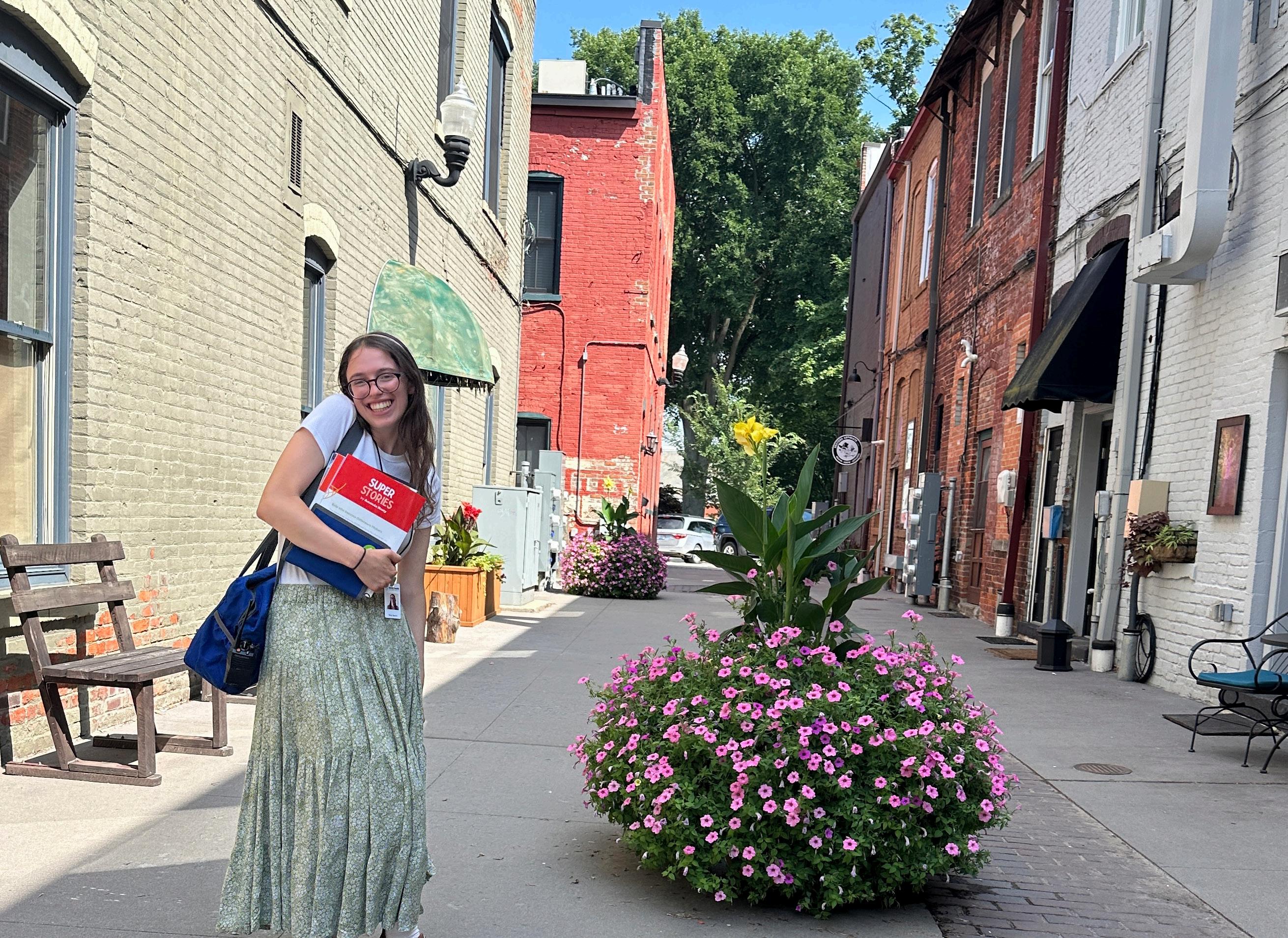
Level up your semester at Southern
Rhett Seitz Lifestyle Editor
We blinked, and summer is officially over. Now it’s time to get back into the books. But a new semester isn’t just an opportunity to study hard and chip away at your degree. It’s also a chance to explore new opportunities that will shape your time at Southern. Here are some lessons I’ve learned during my years at Southern:
1. Get out of your comfort zone
This is my biggest piece of advice. Take a risk. Try something new. You can ask someone out on a date, join a club or go on a Sabbath afternoon hike.
College is the perfect time to challenge yourself and experiment. You have to explore to discover what fits you. This may require failing at times, and that is ok. The only unacceptable failure is not trying at all and staying where you currently are.
For example, when my close friend asked me to go to the sauna with him. Originally wanting to say no, I finally agreed and decided to go. I did not know that my visit to the sauna would end up being an opportunity that led me to meet all kinds of different people.
2. Network, network, network
College is a unique time to meet all kinds of people from different backgrounds, each with their own perspective. Most people are open to conversation and if someone isn’t interested, don’t worry,
there are plenty more people to meet on this campus.
The most overlooked people to network with is the faculty. The faculty here genuinely care about students and want to help you, which sets Southern apart from other universities.
Some of the best advice I have ever received has been when I sat in professor’s office, not necessarily asking about the class, but about life’s big questions.
3. Take care of your body and yourself
It’s easy to let your health slide when academics take center stage, but your body is the vehicle for everything you do. If you’re sick or run down, nothing else functions properly.
Eat well, exercise, get enough sleep, soak up some sunshine and practice basic self-care. These things don’t take much time but neglecting them can cost you later.
4. Don’t forget about Him
One of the biggest mistakes I’ve made in college is neglecting my time with God. Life gets busy, and skipping morning devotionals or prayer might seem tempting. But even a few minutes spent in prayer or reading the Bible can make a big difference in your day. Remember, you don’t always need a special place to pray. You can talk to God on your way to class, in between assignments or whenever you
need guidance.
For me, I like to talk to God when I am driving alone as that gives me time and space to talk with him and tell him my burdens. There are countless ways to start the semester strong. You don’t need complicated college hacks or elaborate systems. All you need are just a few thoughtful life adjustments, which will hopefully set you up for a successful, fulfilling semester.


The Prez @ Promenade
• COLLEGEDALE 10:00 am - 11:30 am Friends and Fun @ Collegedale City Hall 5:00 pm Futsal Captain’s Meeting 7:45 pm - 8:45 pm Student Association Senate Meeting @ Bietz Center, 1st floor

Photos @ Bietz Center, 3rd
Island Camping (September 12 -
2025) ($25) 6:00 pm - 7:30 pm School of Business Induction Service @ Thatcher Chapel 6:30 pm Vespers: LifeGroup Vespers @ Collegedale Church of Seventh-day Adventists
7:30 pm GroupLink @ Iles P.E. Center
7:51 pm Sunset
• 8:30 pm Vespers: LifeGroup Vespers @ Collegedale Church of Seventh-day Adventists

• Student Missions Re-Entry Retreat (September 11- 14, 2025)
• 11:00 am Convocation: Christian Service @ Iles P.E. Center

Intramural Schedule: Softball
Wednesday 6:00 pm
- Base-ically Tired vs Pitch Perfect! (Ladies’)
- FOUL PLAY vs sarang stealers (Ladies’)
- Let Andrew Hit vs Swingerz (Men’s A)
7:00 pm
- PIKKI PIKKI vs Bat Biddies (Ladies’)
- Base Babes vs That’s Foul (Ladies’)
- Shalom Yahweh vs clankers (Men’s B)
8:00 pm
- there’s no place like home vs BAT INTENTIONS (Ladies’)
- Outta Your League vs LPC (Ladies’)
- Doot Doot (6 7) vs Hosers (Men’s B)
9:00 pm
- Jabase Stealers vs Old School (Men’s B)

• 11:45 am Merge Worship @ Collegedale Academy Elementary Gym
• 11:45 am Renewal @ Collegedale Church of Seventh-day Adventists
• 7:30 pm Evensong: Alumni Spotlight @ Collegedale Church of Seventh-day Adventists

• 9:30 am SOAP: Ocoee Rafting @ Wright Hall ($10)
• COLLEGEDALE 10:00 am - 2:00 pm Collegedale Market
• COLLEGEDALE 11:00 am - 1:00 pm
Happy Hookers Yarn Club @ West Room, City Hall
• 6:00 pm Tornado Siren Test

Payday: Salary View Southern Futsal Season Begins
• 3:30 pm Undergraduate Curriculum Committee @ Wright Hall Robert Merchant Room
- The Foul Balls vs Jorts Boys (Men’s B)
- The Hardballs vs Tiger Balm (Men’s B)
Thursday
6:00 pm
- The Foul Balls vs Munenyo Masters (Men’s B)
- baka pumpkins 67 vs Bomb Squad (Segarra) (Men’s B)
- Hosers vs Barely Atletico (Men’s B)
7:00 pm
- Las Batties vs Handball (Ladies’)
- Batties vs Pitch Perfect! (Ladies’)
- Goob vs your worst nightmare (Men’s B)
8:00 pm
- Moneyballers vs Trey Tucker (Men’s B)
- Base-ically Tired vs bat to the bone (Ladies’)
- Lone Pairs vs Moneyball (Men’s B)
9:00 pm
- Doot Doot (6 7) vs Team Rocket (Men’s B)
AdventHealth
Internship & Residency Programs
Business
Leadership Internship
• 11 Week program (May -August)
• Paid Internship
• Travel reimbursement & housing provided (if needed)
• GPA – 3.2 minimum
• Sophomore or above
• Leadership experience (clubs, teams, etc.)
**Full -time Finance/Accounting interviews available during campus visit

& Ministry
Leadership Residency
• Full Time position, three -year program with benefits
• Must be a Senior to apply
• Project based rotations
• Executive mentoring
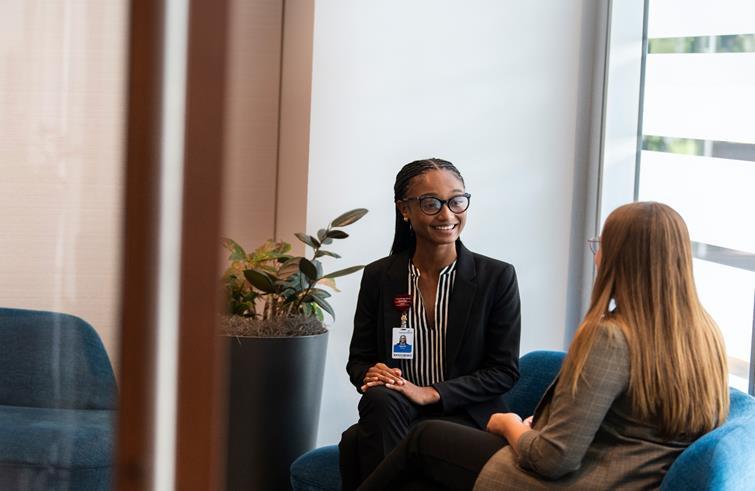
• Education Assistance – debt free and tuition reimbursement options
• GPA – 3.4 minimum
• Relocation bonus for qualified candidates

Scan to sign-up for interview


